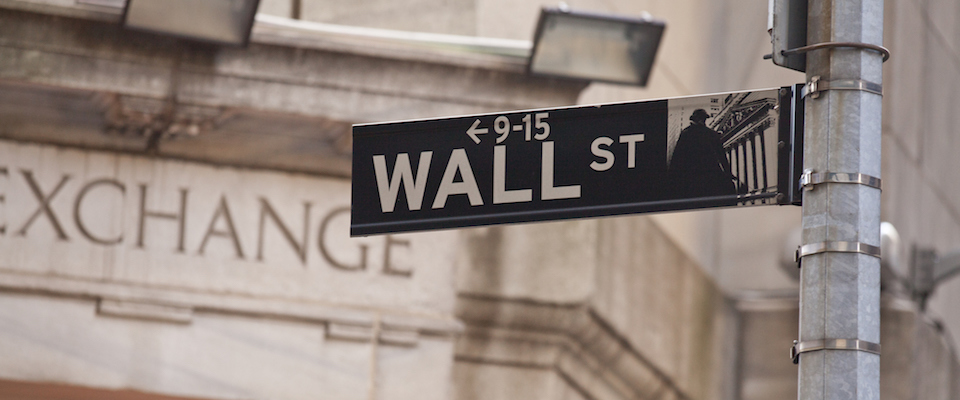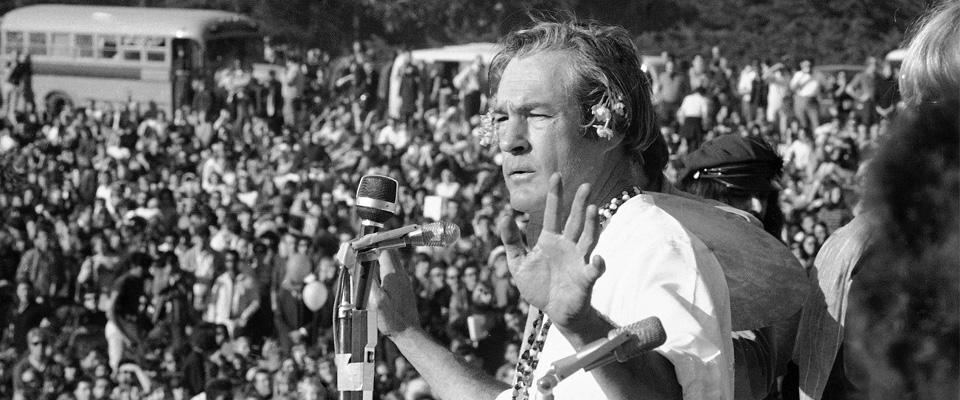We accept that what goes up must comes down. What we don’t always understand is why. Like countless financial shakeups throughout history, this week’s stock market plunge has sparked widespread debate as to its causes. While there are no hard-and-fast answers, there are educated insights. California magazine rang up Terrance Odean, Rudd Family Foundation Professor of Finance at Haas School Business, and asked him to reflect on the recent downturn and what it reveals about the behavior of markets—and the psychology of those who invest in them.
Media coverage has described a number of seemingly rational explanations for the drop, from rising interest rates and wages to low unemployment. But surely there are also emotional and psychological factors at play. Any sense of what those might be and how important their influence has been?
Market reactions, the big reactions, are always likely to be a mix. Why did people start selling? I don’t know for sure. Certainly, relative to metrics or pricing ratios commonly used, stock prices have gotten high. There’s been a lot of talk of that, so investors, understandably, start to say, well, maybe we’re getting to the top. It’s time to pull back. That’s certainly reasonable and rational. And then you have a lot of investors who just react to price points. They see the market dropping, and they are scared by that, and they sell basically because other people are selling.
When big sell-offs happen, how do we distinguish between a correction to the market and a panic, and has there been any panic that didn’t start out looking like a correction?
To some extent, it’s an issue of how long it goes on. You might say it’s a correction if reasonable people felt that the market was valued too highly and decided to sell some of their stocks. It’s a panic if everyone sells because they’re afraid that other people will sell before they sell. A panic is like a bank run. Classic bank runs were interesting because they were self-fulfilling prophecies. If everyone thought the bank was solvent, nobody pulled their money out, and the bank was solvent. And if everyone got worried that the bank was insolvent and pulled their money out, then the bank would fail.
It’s important to note that this was a big drop, but news like this gets mischaracterized. It makes better copy to say the biggest drop ever. It’s not the biggest drop ever in any realistic measure. It’s a big drop in terms of points but not the hugest in terms of percentage. This is probably somewhere between the 10th and 20th largest. In the crash of 1987, there was a 20 percent drop in a day. The other thing that distinguishes 1987 from now is that there were serious problems in the economy that were being exacerbated by these drops. I don’t know everything about the economy but from where I’m sitting, it looks reasonably strong at the moment.
Some people have suggested that Janet Yellen’s departure contributed to investor skittishness. Do you think that had a significant impact?
I have no idea. I would guess not but I don’t know. I think Janet Yellen is great. I’m sad to see her go. I would say I slept better at night knowing she was there.
Why do you guess that her departure wasn’t a factor?
I’m guessing it’s not the sort of thing investors are really focused on. But beyond that, let’s be realistic. If the market is going to drop because she is leaving, when should it drop? It should drop when you find out she’s leaving, not the day she actually leaves. There’s nothing magic about the actual day she leaves. So I would put the impact of her departure as inconsequential, while also saying that she’s great.
How important are technological advances in either calming or inflaming market volatility? I’m thinking here of the computer algorithms used by big trading firms, for instance.
There was a lot of discussion after the 1987 crash about whether programmed trading had contributed to it. Many people felt that it had. If you get lots of institutional investors with a lot of money automatically selling when the market drops, then their selling pushes the market down. And if they have a naive rule that just says the more it drops, the more we sell, you’ve got a market in free fall. A number of economists think that a very simple selling program contributed to 1987. I don’t think you have the same sort of simple, one-rule approach that we had back then. The algorithms are much more sophisticated. It’s possible whenever you have algorithms that take price moves as a signal, if enough people are doing it that you get a feedback loop. But I suspect—I don’t know the answer—but I suspect that a lot of the feedback loop in this case was coming from human decisions. People getting worried and thinking it’s time to get out. Certainly, it’s possible to write algorithms that would upset the market, but most people don’t write algorithms for that reason. They write algorithms to get themselves richer.
Are stock markets today more or less immune to certain kinds of news, rumor, and information than they once were? There are stories of 19th-century panics set off by rumors of a politician dying, for instance. Are we more vulnerable to those kinds of rumors today?
It’s an interesting question. I would guess that we are less vulnerable now than we were in the 19th century but we are more vulnerable than we were a decade or two ago. It goes to how information flows and gets verified. If you heard a rumor a century ago and thought it was material, how would you find out if it was true or not? Throughout most of my life, you got your information from the newspapers or the network news. Did they make mistakes? Yes. Did they make some effort to get things right? Also yes. Now there’s more danger. It’s always been the case that people spread rumors about a particular stock in order to profit from it. Pump and dump stuff. It’s very hard to do that with an entire market. But we have a certain vulnerability now because people can intentionally create false information and it can propagate quickly. The adage Don’t believe everything you read—it’s more true today than at any point in my life.
On that note, is there any reason to be concerned that Russians might be hacking our stock market, too?
Not that I know of…. Do I have any reason to believe that that’s what’s going on? No. What has happened this week is not by any means out of the realm of what you would expect to see every few years. We had a prolonged rise in the market. We gave you gains from this year and maybe a little from last year. But if you bought in a year ago, you still made money. If you bought five years ago, you made a lot of money. It’s a big deal to have the market drop 4 percent but it’s by no means unprecedented. Investors should expect days like that.





















